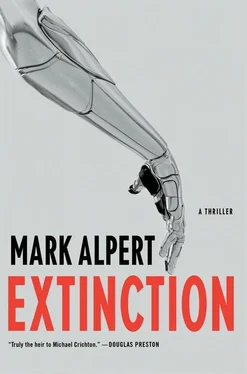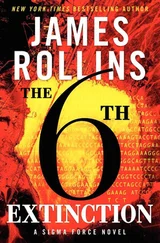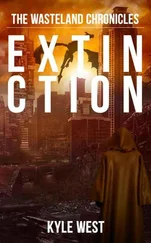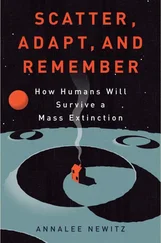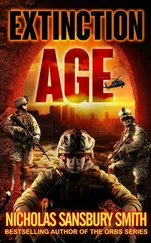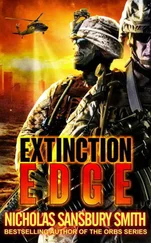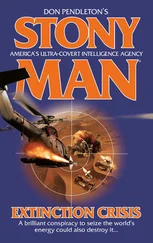For Tommy and Sarah, my hero and heroine
What, then, is the Singularity? It’s a future period during which the pace of technological change will be so rapid, its impact so deep, that human life will be irreversibly transformed.
—Ray Kurzweil,
The Singularity Is Near
Dr. Zhang Jintao raced down the mountainside, fleeing the gray cloud.
Roughly oval and about the size of a hot-air balloon, the cloud glided just above the rocky slope, a hundred meters behind him. As he scrambled down the steep trail, he looked over his shoulder and saw the gray mass coming closer. Its irregular surface heaved and roiled.
Although Dr. Zhang was a strong man in excellent condition, he’d reached the limits of his endurance. He was above the timberline of Yulong Xueshan, a mountain range in southwestern China, and the thin air made him gasp for breath. Stumbling and cursing, he scuttled over a crag littered with fist-size stones. Then he stepped on one of the loose rocks and lost his footing. He skidded down the slope, sliding helplessly on his back, and smacked into a granite boulder.
He lay there, stunned, for several seconds. By the time he opened his eyes, the gray swirls of the cloud had enveloped him. He felt hundreds of pinpricks on his skin, then a cool numbness. He couldn’t move. His vision darkened and his hearing grew muffled.
The cloud gradually dissipated. Zhang couldn’t turn his head, but out of the corner of his eye he saw two men come down the slope and stop beside him. One man was tall and thin, and the other was short and fat, but they were dressed identically, in gray jumpsuits. The expressions on their faces were also identical: blank and slack.
Zhang recognized both men. He’d operated on the short one six months ago and on the tall one just a week ago. The short man’s hair had grown back since his operation, but the tall man’s scalp had only a dusting of stubble. The stitches above his ear were still visible.
Furious, Zhang struggled to move his numb lips and tongue. “So this… is how… you treat me? After all… that I’ve done?”
The short man remained immobile, but the tall one stepped forward and looked down at Zhang. “We have identified you as a threat.”
“I don’t… believe this. If I hadn’t…”
“We will return you to the Operations Center. Please be patient. Another unit will arrive soon to help us carry you.”
“And what… will you do to me?”
There was a slight pause. “You no longer have the security clearance for that information.”
“You…” Zhang’s vision grew dimmer. The drug that had been injected into his bloodstream contained a sedative as well as a paralytic agent. “My fault… you’re…”
The tall man continued to look down at Zhang, his face still blank. And then something odd happened. The man’s lips twitched. His facial muscles fired spastically, as if struggling to do something extraordinarily difficult. After a few seconds he finally succeeded in coordinating the muscles, and his lips formed a smile. “Yes, it’s your fault. You gave us the capabilities. And now we’ve made a discovery.”
Zhang stared at the horrible newborn smile. It was the last thing he saw before he went under.
“Your fault, Dr. Zhang. Supreme Harmony is conscious now. We are alive.”
Jim Pierce was in his workshop with one of his customers, a nineteen-year-old army private named Steve Dugan. Jim started the consultation by offering coffee to the private and his father, who’d driven his son to Jim’s office. The workshop was in the basement of Jim’s home in McLean, Virginia, just a twenty-minute drive from Walter Reed Military Medical Center. This hospital, devoted to rehabilitating the most severely wounded soldiers, was where most of Jim’s customers came from.
Jim poured the coffee into two mugs and handed both to Steve’s father, a heavyset man in his fifties named Henry. The Dugans sat on stools around a square table in the center of the room. Henry rested one of the coffee mugs on the table and raised the other. “Here you go, Stevie,” he said in a low drawl. “Hold still now.”
He brought the mug to his son’s mouth and gently tilted it. Henry was good at this—he’d obviously done it many times before—and didn’t spill a drop. Steve took a sip, then said, “Thanks, Dad,” in a drawl just like his father’s. He had a friendly round face and a blond crew cut.
Jim sat down across from Steve and leafed through the kid’s papers. Dugan had served in eastern Afghanistan with the 187th Infantry. Four months ago, while his squad was patrolling the village of Janubi Nakum, their Humvee ran over a buried IED. The explosion killed the other two soldiers in the vehicle; Dugan, who was manning the Humvee’s turret gun, lost both his arms. Before enlisting, he’d been a linebacker for his high-school football team in Oklahoma City. Now the muscles in his neck and shoulders were atrophied and the sleeves of his T-shirt hung limply on either side. But his health was good otherwise, and his doctors said he had a positive attitude.
Jim leaned across the table. “All right, Steve, it’s very simple. We’re here to talk about the prosthetic arms I’m going to build for you. I’m going to show you what I think is your best option and you can tell me if you like it, okay?”
The kid nodded. “Yes, sir. Understood.”
“I have a prototype you can look at. I added a few special features that I thought would fit your needs, based on what I saw in your medical reports. I had to design some components from scratch, but I’m pleased with the results and I think you’ll be, too.”
“Thank you, sir. I appreciate all the work you’ve done for me, Colonel.”
“You don’t have to thank me. You deserve the effort I’ve put into this. The army gave me this contract because it honors the service you’ve done for your country. You and all the other boys at Walter Reed.” Jim lowered his voice a bit, trying for a more casual tone. “And by the way, you can drop the ‘sir.’ I’ve been out of the army for fifteen years now. Just call me Jim. Or Mr. Pierce. Either one.”
Dugan nodded again. “Okay.”
The kid looked nervous. Jim gave him a smile. He was usually pretty good at striking up friendships with these boys. The army connection definitely helped. Although Jim was technically a civilian now, running his own business and juggling half-a-dozen government contracts, he was still a soldier at heart. He didn’t wear his army greens anymore, but his workday clothes—brown shoes, khaki pants, and a blue button-down shirt—were so plain and unvarying that they might as well have been a uniform. His hair was graying, but he kept it trimmed as close and neat as an infantryman’s. He still woke up at six and went to bed by ten, unless his insomnia was bothering him. And he still jogged six miles every morning, running it only a minute slower than he did when he was a Ranger. He’d adopted this lifestyle thirty years ago, when he left his home in West Virginia and arrived at West Point, and he saw no reason to change. It suited him well.
But Jim had something else in common with Dugan, and now it was time to mention it. “Before we start, I want to make one thing clear,” he said. “I can’t give you back your old arms. That’s beyond my abilities. But I’ll tell you what I can do, Steve. I can give you something better.”
Читать дальше
